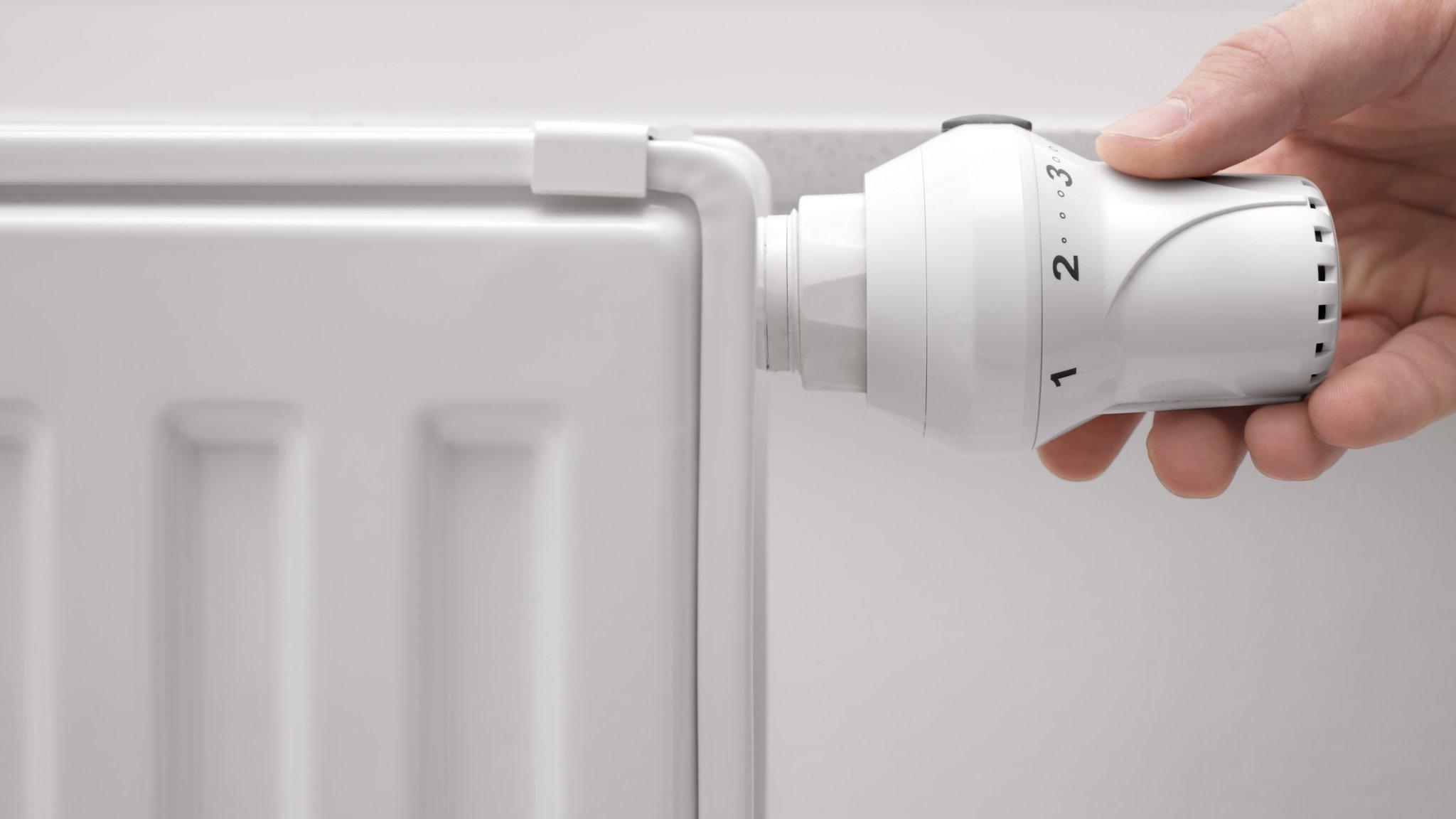Cold homes caused 9,000 deaths last winter, study suggests
- Published
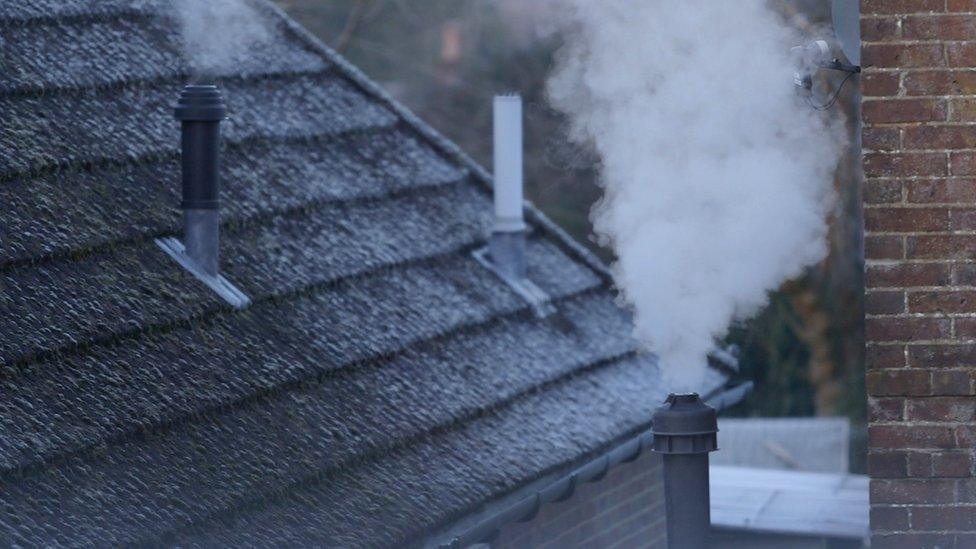
An estimated 9,000 people died last winter in England and Wales as a result of living in a cold home, a university study has suggested.
It found a fifth of the 43,900 excess winter deaths in 2014-2015 were caused by low indoor temperatures, BBC Panorama has learned.
Cold homes increase the risk of respiratory infections, heart attacks and strokes, the researchers said.
Ministers say £1m has been invested to help those who are ill from cold homes.
'Entirely preventable'
The University College London (UCL) study calculated that 9,000 deaths was the highest number for 15 years.
Each year, the Office for National Statistics calculates the number of additional deaths which take place in winter, caused by interrelated issues, including falls, viruses which are more prevalent in winter and cold indoor temperatures bringing on or exacerbating illness.
Researchers took those statistics and the English Housing Survey, which collects information about the condition and energy efficiency of housing, and extrapolated the number of deaths occurring in the coldest homes.
Dr Jessica Allen, whose team conducted the study, told BBC Panorama: "This was not the coldest winter on record. People dying from cold homes are a result of high fuel prices, low incomes and poor insulation. It's entirely preventable.
"If that was an epidemic of some disease there would quite rightly be people marching in the streets and causing an outrage, but this is because of the cold."
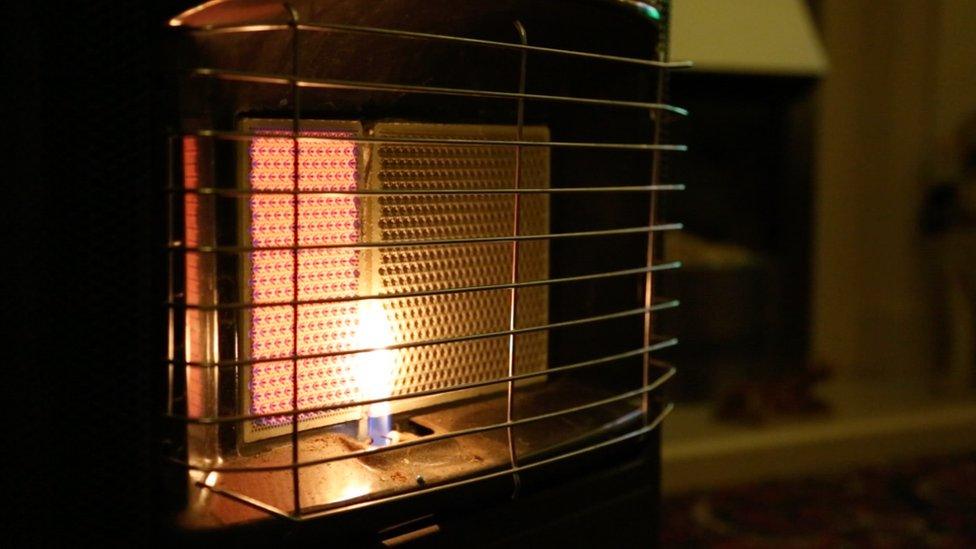
Dr Allen said the figure was a shocking indictment on the current levels of fuel poverty.
The charity Age UK estimates that fuel poverty, where people cannot afford to heat their home, costs the NHS around £1.3bn every year.
In 2000, the government agreed a legally-binding objective to eradicate fuel poverty by 2016.
But the target has been missed and official figures show there are still five million people living in cold homes.
The government used to define a household as fuel poor if they spent more than 10% of their income on heating their home, but the government changed how it measured fuel poverty in England in 2013.
The criterion for fuel poverty in England is now based on whether heating a home to a decent standard would leave the household below the poverty line.
Analysis carried out for Panorama suggests about 13m people would be classed as fuel poor if the definition had stayed the same. Under the new measurement the number of people is around five million.
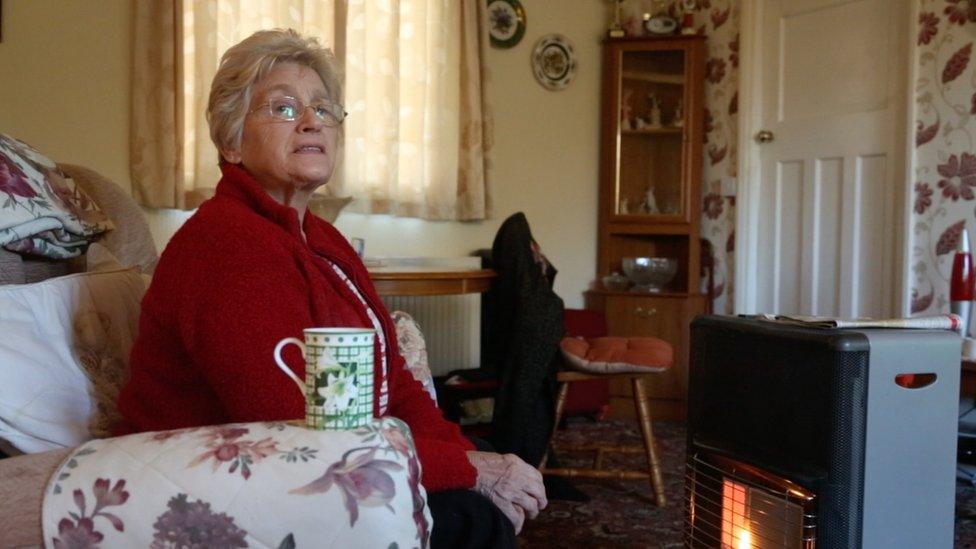
Olive Naismith, 77, sleeps in her living room because her bedroom is so cold
Olive Naismith, 77, is no longer considered fuel poor in the official statistics. She has moved her bed into the living room because she can only afford to heat one room of her bungalow.
Because Olive lives alone and receives the full state pension, under the government's new definition her income is too high for her to be classed as someone in fuel poverty.
The government says the new measure was introduced following an independent review and extensive consultation. It says the definition is more accurate and helps support those most in need.
It also says that it is "serious about helping vulnerable people heat their homes".
It has already spent "over £2.8bn… installing energy efficiency measures" and is requiring energy companies to "make one million homes warmer by 2020", a spokesman added.
Panorama - Too Poor to Stay Warm is broadcast on BBC One on Monday 21 March at 20:30 GMT. Catch up on BBC iPlayer
- Published20 March 2016

- Published2 February 2016
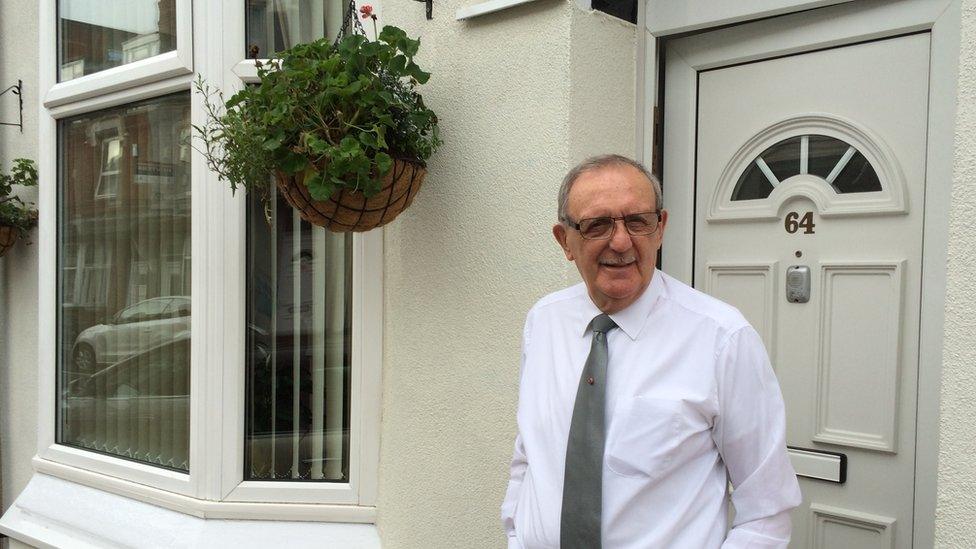
- Published9 January 2015
